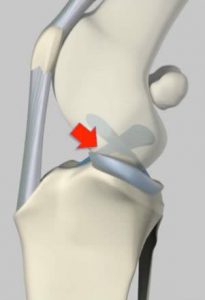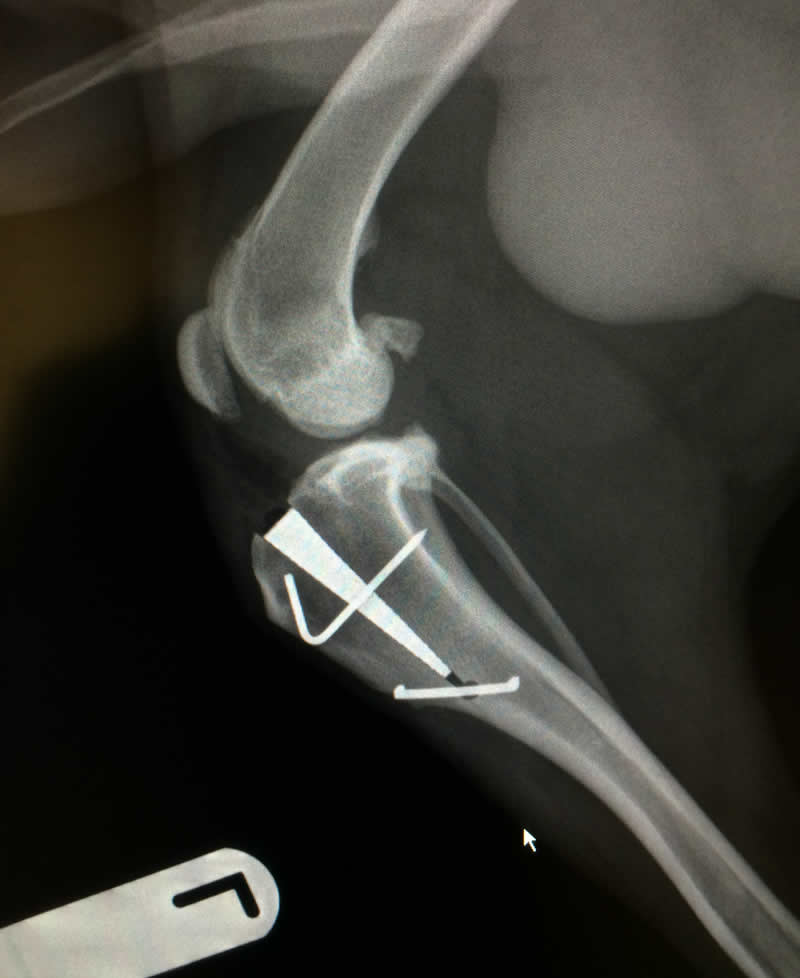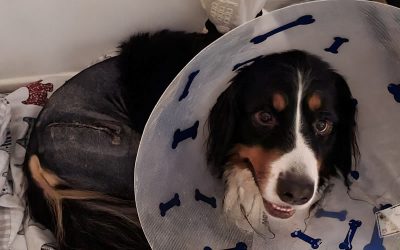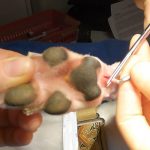One of the most common problems we see in dogs is back leg lameness due to cruciate ligament disease.
 These ligaments are located in the stifle joint (knee) and are essential in keeping the joint stable as the dog bears weight during exercise. There are two main cruciate ligaments & these form a cross arrangement in the joint which gives them their name from the Latin word “crucis” meaning cross.
These ligaments are located in the stifle joint (knee) and are essential in keeping the joint stable as the dog bears weight during exercise. There are two main cruciate ligaments & these form a cross arrangement in the joint which gives them their name from the Latin word “crucis” meaning cross.
Unfortunately, many dogs are prone to degeneration of the cruciate ligaments which eventually leads to tearing and/or complete rupture of the cranial cruciate ligament.
As if rupturing a ligament isn’t painful enough, the instability this creates causes repeated trauma in the joint.
Inflammation and pain cause lameness and osteoarthritis soon follows.
The body does its best to form scar tissue to support the unstable knee but this takes a long time and the result is often unsatisfactory for a young athletic dog.
Vets have been performing operations to stabilise dog’s knees for decades but recently a new technique has been adapted from a human operation devised many years ago.
Orthopaedic surgeons love acronyms and this operation is known as the TTA /MMP (Tibial Tuberosity Advancement by the Modified Maquet Procedure)
The operation involves cutting the bone and inserting a sterile titanium mesh wedge implant into the tibia. This changes the dynamic forces on the stifle when the dog is walking.
By neutralising various forces from gravity and muscles, the joint stops being unstable and the dog is soon able to walk and then run without pain. The body will still make efforts to form scar tissue for stabilisation but this becomes less important as the joint no longer moves abnormally during exercise.
This is a big leap forward for these patients as the dogs are usually walking well within a week & after 2 months or so they can run around normally.
Whilst it is never nice to see a dog in discomfort it is heartening to know that we now have a technique which gives them relief quickly and the chance of a normal, active life after a relatively short recovery period.
Jason Williams
Bicester Vets
Building Plans for 2024
We have also commenced a major construction project externally which will add significantly to the facilities we can offer to our patients
Welcome to our NEW Reception & Waiting Room
Our aim was to make a beautiful space which we can all be proud of, but essentially, we needed to retain practicality and ergonomic design
Hip Hip Hooray for Ava
Ava is now seven months on from her surgery. She is very lively and is behaving like a puppy again!









